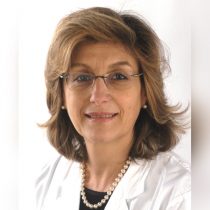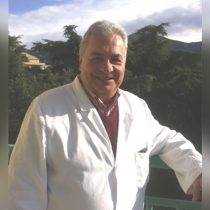IRCCS Institute Giannina Gaslini – Genoa
Area of expertise and Healthcare Provider’s contribution to care for patients within the MetabERN Network
Concerning lysosomal diseases, the Healthcare Provider has a longstanding tradition (41 years) and internationally recognized expertise in prenatal and postnatal diagnosis which could be shared with other Healthcare Providers.
In the same laboratory there is one of the oldest national biobanks, established in 1976, which preserves well-documented biospecimens and associated data, continuously updated on the basis of clinical revisions and research results. To date, the biobank stores 12,500 biospecimens including dermal fibroblasts, EBV-lymphoblasts, amniocyte and chorion villous cells, DNAs/RNAs, blood samples, serum/plasma. The online sample catalogue lists more than 260 distinct genetic defects. The relative number of patients is the following: lysosomal disorders 1394, carbohydrate metabolism disorders 143, other metabolic disorders 181.
It has always been associated member of the BBMRI-EU and in 2014 admitted to BBMRI-IT.
From 2012 it is partner of EuroBioBank and of RD-Connect, an EU project aimed at connecting databases, registries, biobanks and clinical bioinformatics for rare disease research.
Since 2008, the Gaslini biobank also is the Coordinator centre of ”Telethon Network of Genetic Biobanks ”, composed of 11 Genetic Biobanks located in different areas of Italy.
As distribution service the Gaslini biobank supplied several hundred samples to the international scientific community for specific research projects on rare genetic diseases including metabolic ones .
Up to now, the contribution of the biobank has beenexpressed in more than 200 scientific manuscripts, in which the Gaslini’s biobank is properly cited in the “Acknowledgement” section.
The biobank has also developed a close relationship with the Patients’ Associations to whom is providing an effective service by biobanking their rare samples. This service is regulated by relevant written agreements which define rules and tasks of the parties.
In these last years the clinicians involved in lysosomal disorders have shared their clinical experiences with Italian and European colleagues to identify algorithm for diagnosis, recommendations for treatment and follow-up, disease severity score index, criteria for assessing minimal disease activity etc; that is true in particular for Gaucher disease because casistic series of Gaucher Disease is the most wide in comparison with series casistic of other lysosomal disorders. This experience is a good contribution to care of patients with Gaucher disease but also a model of cooperation for other lysosomal diseases.
Furthermore Gaslini qualified multidisciplinary team has reached a good experience on metabolic diseases to share knowledge across the network:
- neuroradiologists firstly reported in literature some neuroimaging very typical of specific metabolic diseases (congenital defects of glycosilation, SURF mutations, Krabbe disease etc) and have so wide experience to be a valid support for neuroradiologicdiagnosis of patients from other Healthcare Providers;
- Ematopoietic Stem Cell Transplantation Unit, which has collaboration programs with East Europe countries for transplant in hemato-oncologic diseases, could support other Healthcare Providers for transplant in metabolic diseases;
- ortopedic surgeon and neurosurgeon acquired good experience concerning atlanto-occipital stabilization and other spine surgery which could be available for other Healthcare Providers which need it.
Specific treatments and interventions provided by the HCP
- Giannina Gaslini Institute provides genetic counseling and prenatal diagnosis for all lysosomal diseases by assay of lysosomal enzyme activity and/or molecular testing in chorion villi and/or amnyocytes ; for other metabolic diseases, where the prenatal test is not available, Gaslini facilitates the couple at risk by providing sample taking, processing ,and sending to external laboratories for analysis which is free of charge for patients. The prenatal testing always includes genetic counseling and molecular test (STR/VNTR) for the exclusion of maternal contamination.
The Healthcare Provider provides regional newborn screening for 40 intermediate metabolism diseases, confirmation of diagnosis , treatment and follow-up of confirmed cases. - Patients with acute metabolic decompensation or patients who need acute care are admitted to Intensive Care Unit and treated in accordance with guidelines for emergency identified by metabolic team.
- Postnatal diagnosis based on biochemical/enzymatic /molecular tests is guaranteed by the laboratory section expert in intermediate metabolism diagnosis and newborn screening and by the laboratory section expert in enzymatic and molecular diagnosis of lysosomal diseases. For diagnosis of other metabolic diseases Giannina Gaslini Institute acquires, at its own expense, diagnostic tests from external Italian or European HealthcareProviders. Healthcare Provider accepts referrals from primary,secondary or tertiary centres and is involved in second opinion and counselling rounds.
- Enzyme Replacement Therapy is usually done in outpatient services; for the enzymes licensed bytalian Agency of Drug (AIFA) for home therapy,Healthcare Provider provides the first 8 endovenous administrations and then distributes enzymes for home therapy.
Patients requiring specific medical or surgical treatments for complications of the disease (e.g. gastrostomy,tracheostomy, not invasive ventilation etc) receive these treatments following guidelines identified in accordance with metabolic team.
Transplant Unit guarantees Hematopoietic Stem Cell Transplant to elegible patients. - Outpatient Rehabilitation Services of Giannina Gaslini Institute are available for patients with metabolic disease needing special rehabilitation which is not available in territorial rehabilitation services.
- The Center for Children and Families Assistance (Centro d’Accoglienza per bambini e famiglie, CABEF) sustains accommodation and other services (school services, transports, economic support etc after the discharge) for extra-region children families. Rare Disease Help Desk completes this support by offering information concerning rights and facilities according to Italian law ( DM 279/01 Rare Diseases). Finally for either outpatients and patients admitted to hospital there is a volunteer program (AVO) ranging from direct interaction with children (such as book-reading, game-playing), to family assistance (finding their way around the hospital, providing other general or administrative support).
- A team for home palliative care assistance is available for metabolic disorders, other rare diseases ( e.g. neurodegenerative diseases, neuromuscular diseases) and for oncologic patients. Palliative care team follows metabolic patients in accordance with guidelines specifically identified together with metabolic team
- Furthermore Giannina Gaslini Institute handles Regional Registry of Rare Diseases ( all) which is annually transferred to National Registry of Rare Diseases (Istituto Superiore di Sanità, Rome); Maja Di Rocco is Responsible for Regional Registry.
Via Gerolamo Gaslini 5, 16147 Genova, Italy



